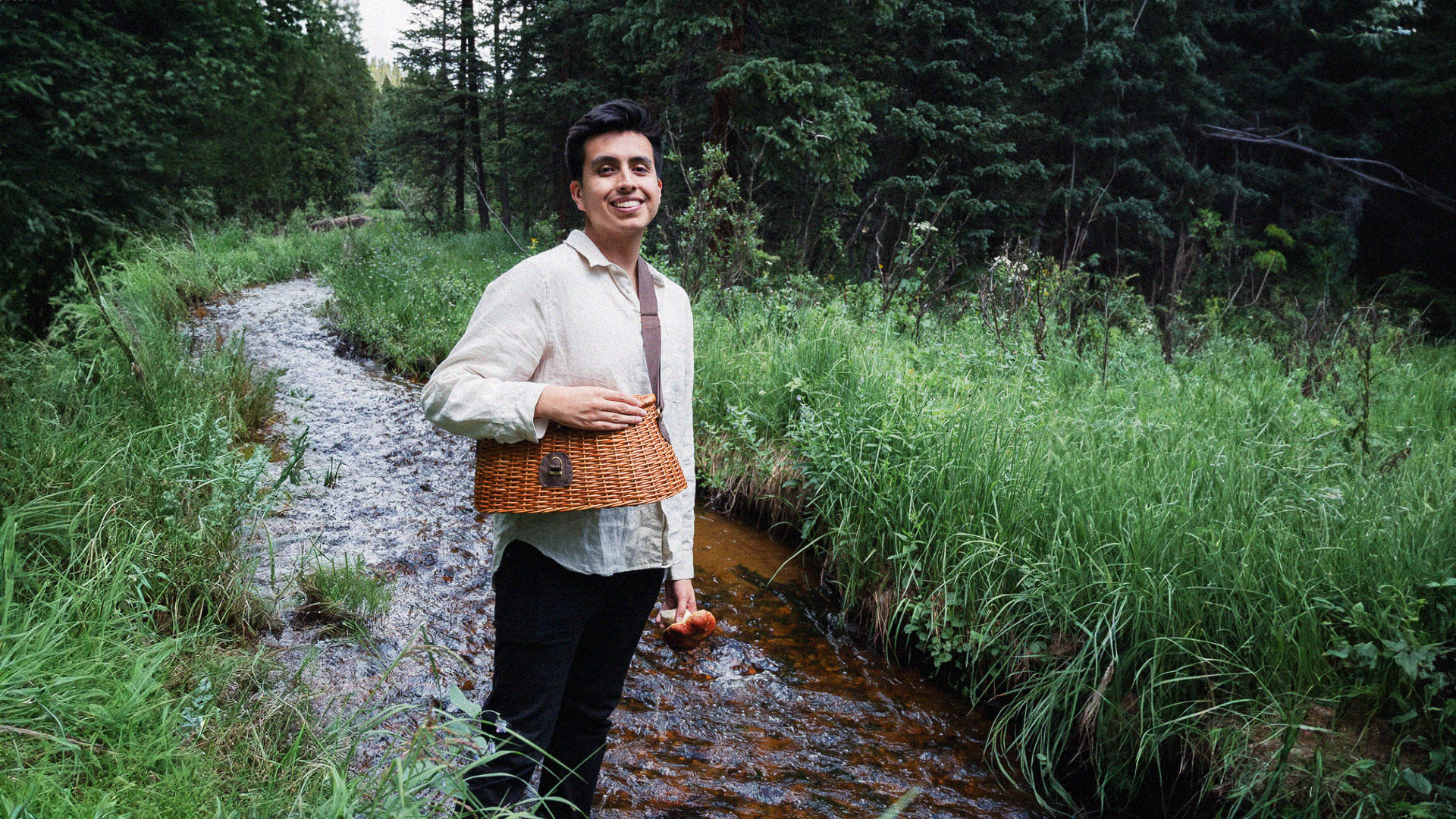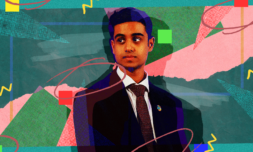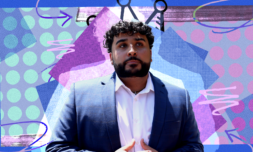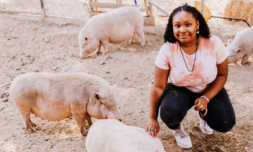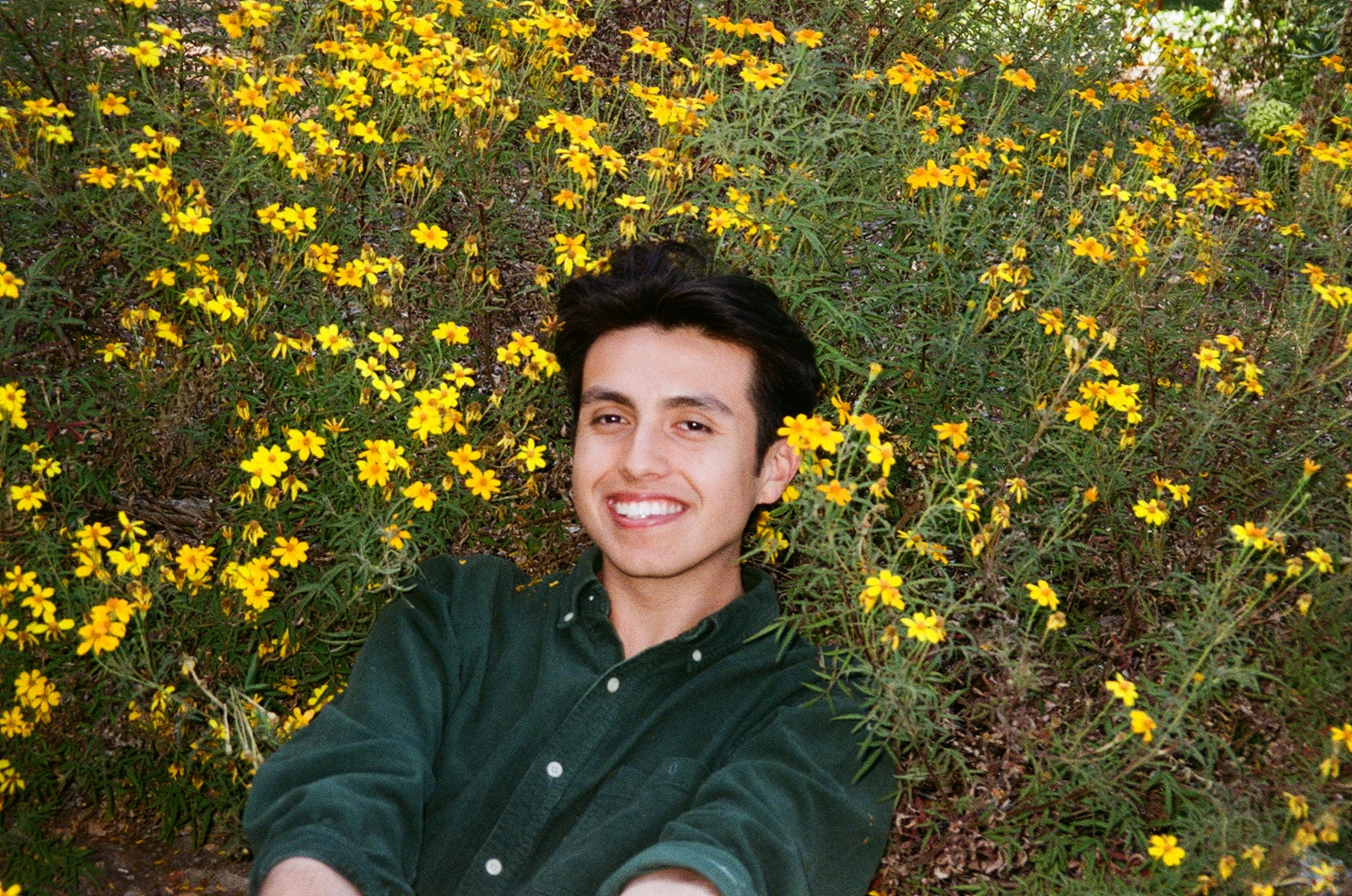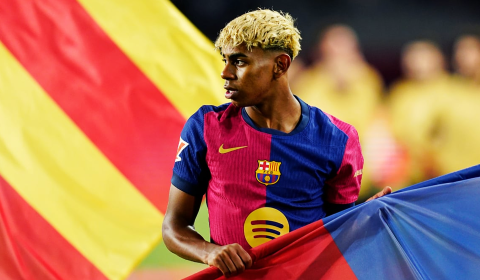The Gen Z environmental educator, who goes by ‘queerbrownvegan’ on social media, is committed to guaranteeing that the links between the disparate issues feeding into our ecological emergency are well understood. We spoke to him about why centring identity, race, and indigeneity in the conversation is decidedly necessary for this to be achieved.
It would be an understatement to say that Isaias Hernandez, who goes by ‘queerbrownvegan’ on social media, has a deep-rooted understanding of the pivotal role that intersectionality plays in his work.
The environmental educator, whose core mission is to generate productive and inclusive discourse on the multifaceted nature of the climate crisis, uses digital activism as his primary means of influencing tangible change.
Besides creating content, Isaias has spoken with businesses, organisations, and people in power – including, most recently, US Vice President Kamala Harris – to guarantee that his message stretches further than his 115,000 (and counting) follower-strong platform.
We had the opportunity to learn from him the links between the disparate issues feeding into our ecological emergency and why centring identity, race, and indigeneity in the conversation is of the utmost importance in order for this to be achieved.
View this post on Instagram
‘The idea of being an environmentalist didn’t come from a desire to be labelled as one, but more as an embodiment of being able to navigate the world with this unique complexity of growing up surrounded by injustice,’ he says.
A Los Angeles native, Isaias has experienced first-hand the obstacles faced by the lower class residents of his city.
From living off food stamps to struggling with LA’s air quality, he was raised with an acute awareness of how poverty, migration, gender discrimination, and the Earth’s destruction are connected.
Reflecting on the ‘weird dimensions and positionalities’ of this, Isaias explains how it laid the foundations for his journey to becoming an environmentalist who keenly embraces his three coinciding identities, which are bound by the forces of the natural world.
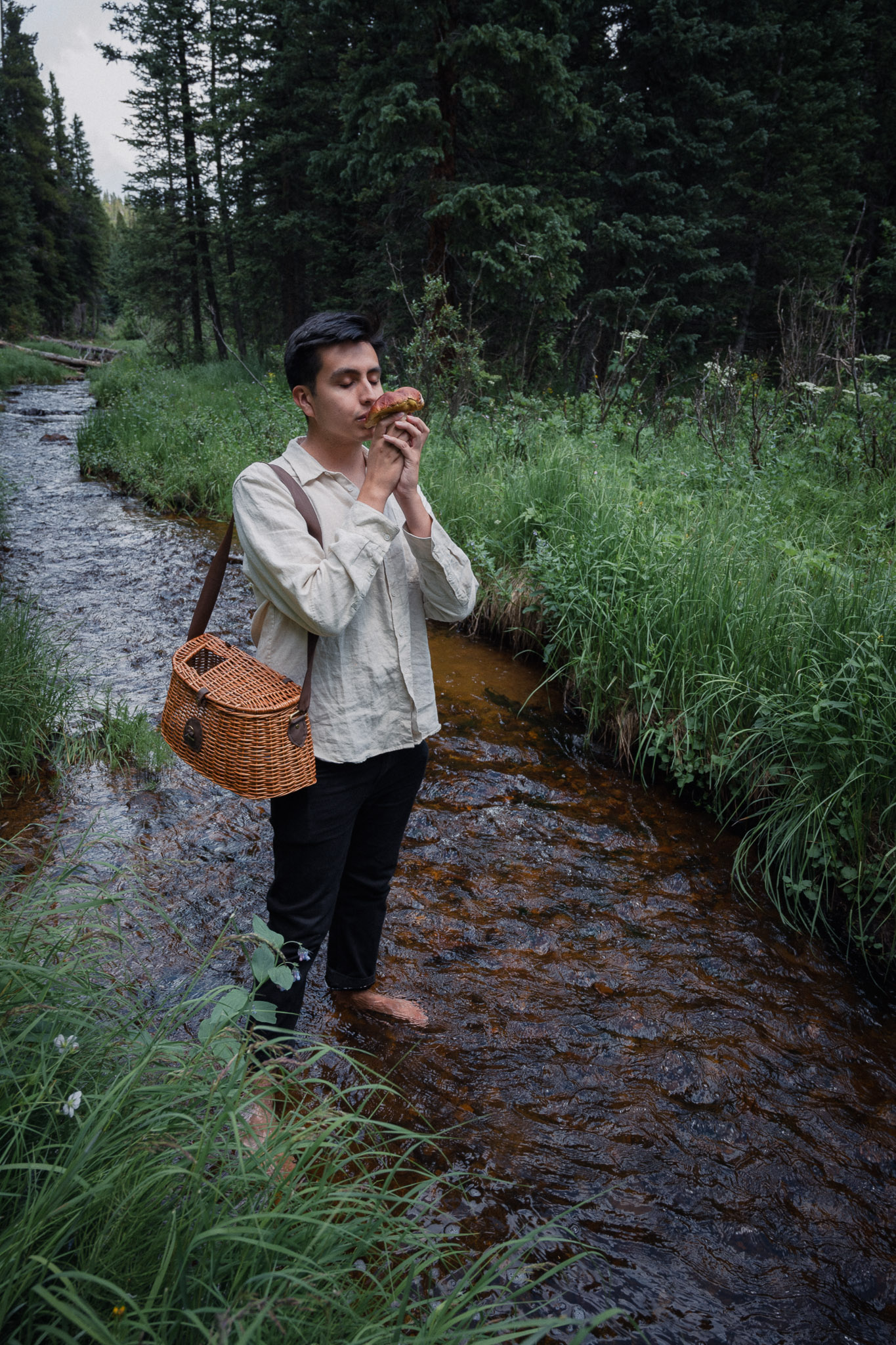
‘Queer ecology taught me that there is no such thing as unnatural because nature doesn’t deem what’s natural and what isn’t, irrespective of what heteronormativity suggests, ’ he says.
‘And my grandparents, who maintained a close relationship with the land both in Mexico and in the US during my childhood, inspired me to welcome my cultural heritage and co-exist with the Earth. Being brown and vegan is hugely influential to me as a result.’
Reaching this point of reclamation has not been without its difficulties, however.
Repeatedly devalued in supposedly progressive spaces – namely academic institutions that regarded his openness as unnecessary to discuss – Isaias felt disempowered as a young person striving to live altruistically.
Sustainably loving yourself means creating a circular relationship with the Earth, community, and self. Fostering passion to make the world a better place while unlearning perfectionist values.
— Isaias Hernandez (@queerbrownvegan) April 16, 2021
‘At the time, the word environmentalist was something shameful to attach myself to because the image of what it was didn’t include me,’ he says.
‘My view as an educator is to ensure that other BIPOC and LGBTQ+ individuals know that people like me exist out there. My username was intended to oppose how much whiteness is centred in the US climate movement and get people talking about how to address that.’
Asked how he navigates this as more and more BIPOC influencers are vilified for contributing to capitalism through the creator economy, he asserts that it comes down to honing in on the nuances.
‘How can we label a privileged environmentalist without lived experiences as an ‘expert’?’, he questions. ‘That is an issue of white supremacy to me.’
In other words, Isaias, whose upbringing involved campaigning against injustice and pursuing a degree that would allow him to appropriately communicate to his community, believes apprehension towards dangerous centring is essential if we are to offer marginalised people the support they deserve.
‘We are all doing different work,’ he says. ‘If you have a platform, you must be conscious of that and refrain from shutting others down with binary comments because that’s not a conversation. Be respectful and open minded with your approach.’
He adds that, if we truly seek to redesign the system for future people of colour, spotlighting independent communicators from underprivileged backgrounds should be our aim.
‘They are the ones actually able to develop intersectional identities that are inclusive,’ says Isaias, clarifying that reframing this narrative is particularly crucial for young people.
View this post on Instagram
‘We’re not just youth, we’re experts,’ he continues. ‘I’m trying to bridge the gap between digital strategy and academia because the more we see that as an option the more youth will pursue it.’
This being said, as valuable as bottom-up efforts (like Isaias’) to dismantle harmful structures are, the reality is that top-down decision-making upholds significant influence.
For this reason, to encourage better amplification of marginalised voices in such spaces and consequently generate a transformation driven by representation, Isaias thinks longevity and partnership is the answer.









